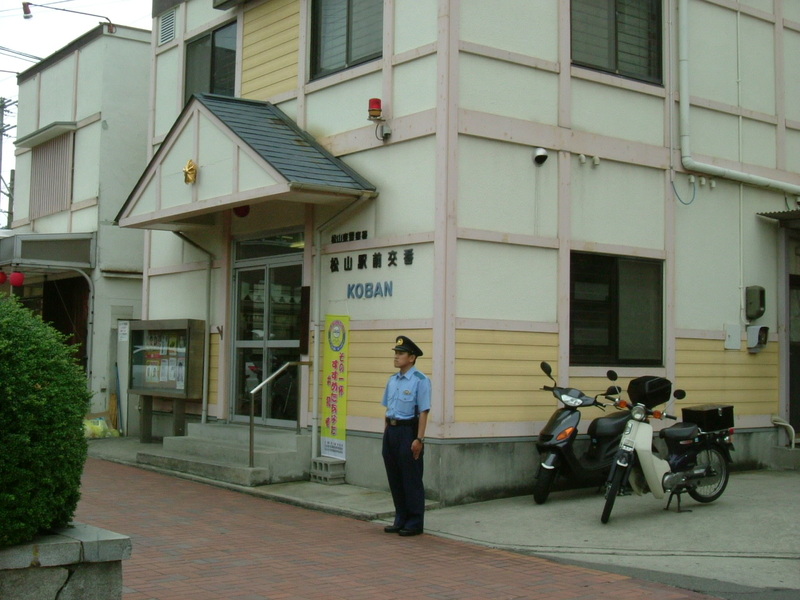Japan is a very safe country, though some shooting incidents occured recently and the number of crimes that are committed by foreigners is increasing. That is something that the Japanese people can be proud of. The crime rate in Japan is exceptionally low among the industrial nations. The fact that the crime rate constantly decreased during the 50s, 60s and 70s, the most hectic years of industrialization and urbanization, is a "miracle" to the eyes of foreign observers.
There are a number of reasons. The Japanese are ethnically and culturally a homogeneous people. They are not divided into classes. They have a high educational standard. The dropout rate in secondary education is as low as 2%. Gun control is strict and effective and there is virtually no availability of firearms among ordinary citizens. The drug problem is minimal. They live in a society of collective responsibility, so to speak, where one person's disgrace is the disgrace of those who are related to that person.
This picture shows a koban that covers the area that my house is located in. Every Japanese knows the koban, but I think that the koban is not familiar to foreigners.
A koban is a police box or a fixed police post. David Bayley, who did an excellent comparative study of police in Japan and the United States wrote: "Unlike the United States, police operations in Japan have not been organized in terms of the patrol car. Fixed posts outnumber patrol cars...almost five to one."
The kobans are all over the country. Again according to Bayley, "There are about 5800 kobans in Japan....kobans serve small, very densely populated areas. In metropolitan Tokyo, for instance, where there are approximately 1000 kobans, the average area covered is about 0.22 square miles containing a population of 11500 people."
In rural areas there are fixed posts called chuzaisho. The major difference between koban and chuzaisho is that the personnel of kobans changes its shift, whereas the chuzaisho is both a fixed post and home for the police officer on duty. He lives in the community with his wife and family.
(Vocabulary)
collective responsibility 集団責任、共同責任、連帯責任
so to speak いわば、言ってみるならば
So to speak. いわば(そうですね)。/強いて言うなら(そうですね)。
in terms of ~を単位として; ~に関して、~の観点から
outnumber 【他動】~に数で勝る、数で凌駕する、~の数を上回る、~より数が多い
・We are not outnumbered. : 私たちは、数では負けていない。
・We were outnumbered more than two to one. : 相手の人数はこちらの2倍以上だった。


Congratulation!
Take care and Good luck!
Posted by: KUMO | Jul 03, 2007 at 02:18 PM
I have a wonderful news! Finally the hospital in Bulgaria accepts me to practice there in this summer. I appreciate you and Dr.M for giving me such a great chance to learn :):):)
I just want to say, THANK YOU VERY VERY VERY MUCH!!!!!
Posted by: sakinromania | Jul 03, 2007 at 01:42 PM